
Subscribe to our free Newsletter
💌 Stay ahead with AI and receive:
✅ Access our Free Community and join 400K+ professionals learning AI
✅ 35% Discount for ChatNode
Welcome to The AI Report!
.png)

How to Elevate Your AI Skills With The OpenAI Academy
Join The OpenAI Academy to explore interactive workshops and resources, boosting your AI skills.
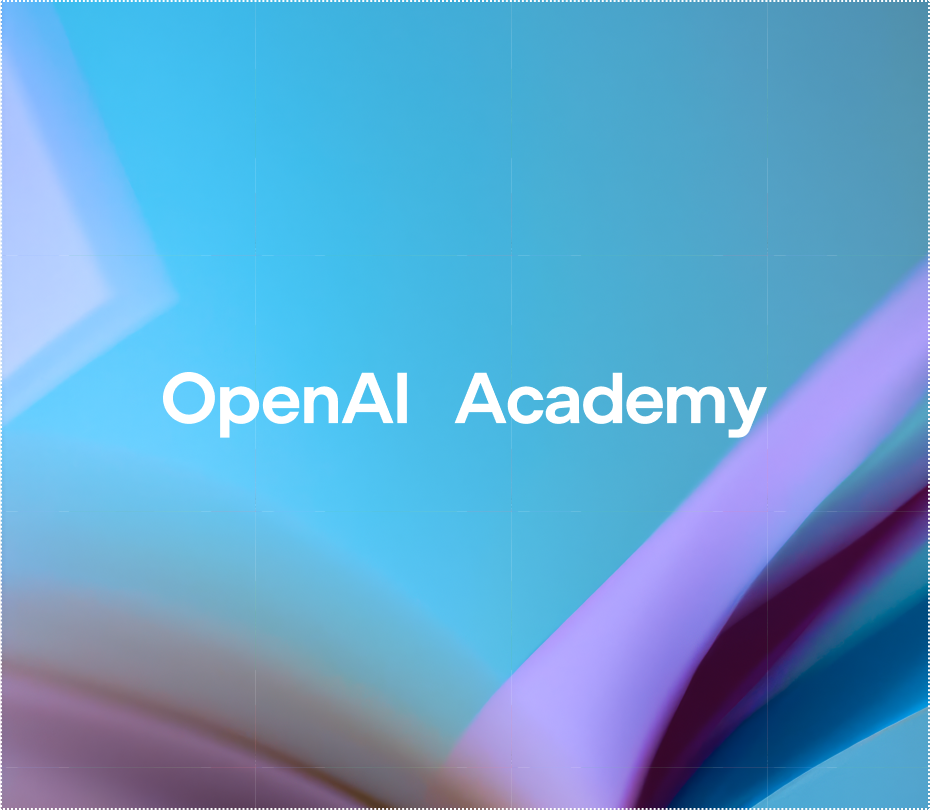

The artificial intelligence revolution has reached a tipping point. With 92% of UK students now using AI in some form, up dramatically from just 66% in 2024, the demand for comprehensive AI education has never been more urgent. This surge in demand is reflected in the job market, where nearly 628,000 U.S. job postings demanded at least one AI skill in 2024, jumping from just 0.5% of all postings in 2010 to 1.7% in 2024. The OpenAI Academy emerges as the definitive platform for mastering these essential skills, offering free, accessible training that transforms how individuals engage with AI technology.
Introduction to The OpenAI Academy
What is The OpenAI Academy?
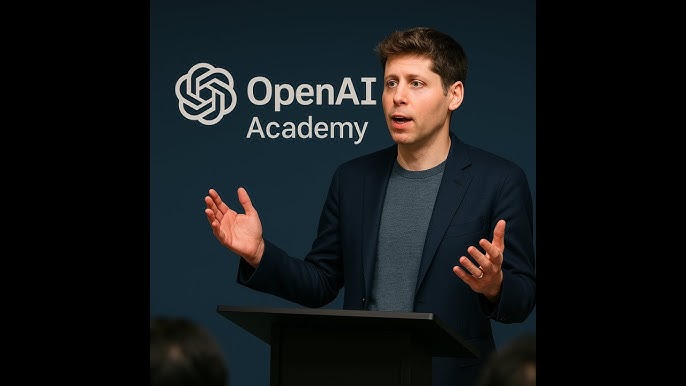
OpenAI Academy stands as a comprehensive educational platform designed to democratize artificial intelligence knowledge across all skill levels. This innovative learning ecosystem removes traditional barriers to AI education by providing completely free access to cutting-edge curriculum, expert instruction, and hands-on learning experiences.
The platform serves diverse audiences, from complete beginners seeking basic AI literacy to advanced practitioners looking to refine specialized skills. The educational approach aligns with leading research findings that show practical application of AI has a significant and positive influence on AI self-efficacy and AI output quality, emphasizing real-world application over theoretical abstraction. Students learn by doing, experimenting with real AI tools and developing competencies that translate directly to professional contexts.
What sets this academy apart is its commitment to accessibility and inclusion. The curriculum is crafted to be jargon-free and culturally responsive, ensuring that geographic location, technical background, or economic status never becomes a barrier to learning. This approach reflects a fundamental understanding that AI literacy will soon be as essential as basic digital skills.
The Mission and Vision of The OpenAI Academy
OpenAI Academy's mission centers on closing the global AI literacy gap through inclusive, high-quality education. The platform recognizes that artificial intelligence's transformative potential can only be fully realized when diverse populations have equitable access to learning opportunities. This vision extends beyond individual skill development to encompass broader societal transformation.
The Academy's leadership understands that responsible AI adoption requires widespread understanding of both capabilities and limitations. Their educational approach emphasizes ethical considerations, bias awareness, and the importance of human oversight in AI systems, reflecting expert consensus that AI systems and tools must account for the context of teaching and learning and must work well in educational practice, given the diversity of learners, settings, and subject matter.
Looking forward, the Academy envisions a world where AI literacy becomes universal, empowering individuals to participate actively in shaping technology's role in society. This ambitious goal drives continuous innovation in curriculum design, delivery methods, and community building initiatives.
Real-World Success Stories
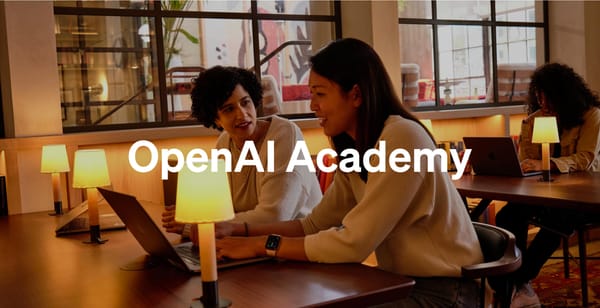
The OpenAI Academy graduates demonstrate the transformative power of practical AI education through remarkable career transitions. These success stories illustrate how focused skill development opens new professional pathways and advancement opportunities.
From Marketing Analysis to AI Product Leadership: A mid-level marketing analyst recently transitioned to AI product manager after completing the Academy's prompt engineering and data analytics curriculum. Through hands-on training in AI-driven customer segmentation and machine learning model deployment, she gained the competencies needed for a role typically earning 20-30% more than traditional marketing management positions, with increased job security and cross-departmental influence.
Manufacturing Technician Becomes Process Optimization Specialist: An automotive assembly line technician leveraged Academy training in AI-powered quality assurance systems and predictive maintenance to transition into an AI Process Optimization Specialist role. This career shift delivered a 10-15% salary increase while moving from physically demanding work to technical leadership with greater advancement opportunities.
Educator Transitions to EdTech Innovation: A high school math teacher utilized Academy courses in AI-powered assessment design and adaptive learning systems to become an AI Curriculum Developer at an EdTech company. This transition provided access to remote work opportunities and entry salaries typically 10-20% higher than traditional teaching roles, with broader educational impact and career growth potential.
Courses Offered at The OpenAI Academy

Foundational AI Concepts
The foundational curriculum addresses the critical skills shortage that has emerged as AI adoption accelerates. With AI-related job postings on LinkedIn growing by 38% between 2020 and 2024, professionals need practical competencies that align with market demands. The Academy's approach emphasizes immediately applicable skills, reflecting research showing that balanced approaches combining practical and theoretical elements maximize learner outcomes.
Text Prompting
Text prompting represents the gateway skill for effective AI interaction. Students learn prompt engineering techniques, structured request development, and context optimization through real-world scenarios spanning content creation, data analysis, problem-solving, and creative applications. This hands-on approach builds confidence and competency that transfers immediately to professional environments.
Image Generation
Visual AI represents one of the fastest-growing applications of artificial intelligence. Students explore how text descriptions translate into visual outputs, optimizing prompts for different artistic styles, technical requirements, and commercial applications. The practical focus supports creative industries, marketing communications, and educational content development.
Specialized AI Topics
Advanced learners require deeper technical knowledge to compete in today's evolving job market. With Machine Learning topping employer demand at 16,760 job listings and median salaries around $145,000, specialized technical skills command significant career premiums and rapid employment opportunities.
Deep Learning
Deep learning fundamentals provide the theoretical foundation for understanding modern AI systems. Students explore neural network architectures, training methodologies, and optimization techniques through project-based learning that emphasizes TensorFlow and PyTorch proficiency, skills increasingly requested for specialized engineering roles. Hands-on projects reinforce learning while building portfolios that demonstrate competency to potential employers.
Natural Language Processing
Natural Language Processing represents a critical skill set as generative AI technologies proliferate across industries. The curriculum covers language modeling, sentiment analysis, text classification, and conversational AI development with both traditional NLP techniques and modern transformer-based approaches. Students develop skills supporting emerging roles in AI product management and solution architecture.
Computer Vision
Computer vision applications span autonomous vehicles, medical imaging, manufacturing quality control, and consumer applications. Students work with real datasets, learning to train and deploy vision models while addressing ethical considerations around surveillance, bias in visual recognition systems, and privacy implications.
Career Outcomes and Market Demand

OpenAI Academy graduates enter a job market with exceptional opportunities and compensation potential. Current industry data reveals compelling career prospects that reflect the explosive demand for AI skills across all sectors.
The employment landscape for AI-educated professionals shows unprecedented growth, with STEM employment growing from 6.5% of all jobs in 2010 to nearly 10% in 2024. This expansion creates substantial upward mobility opportunities for AI-trained workers across traditional and newly emerging fields.
Salary prospects reflect this strong demand, with top AI roles commanding median base salaries well above $115,000-$140,000, particularly in high-demand sectors like healthcare, finance, and professional services. The combination of explosive demand and talent shortfall contributes to rapid employment placement, with many graduates finding positions within three months of program completion.
The Bureau of Labor Statistics projects software developer employment to increase 17.9% from 2023-2033, much faster than the 4.0% average for all occupations, driven primarily by AI and related technologies. This surge expands opportunities for Academy graduates in both traditional and newly emerging fields.
Learning Formats at The OpenAI Academy

Online Learning Opportunities
Digital learning formats have proven remarkably effective for AI education. Research demonstrates that students using AI tutors learned significantly more in less time compared to traditional classroom environments, with higher engagement levels and improved learning outcomes.
The Academy's online platform leverages these advantages through personalized learning paths, interactive simulations, and real-time feedback systems. Students access comprehensive video libraries, coding environments, and collaborative project spaces that support both individual study and group learning. The platform's adaptive design responds to individual learning styles and paces while removing geographic and scheduling constraints.
In-Person Workshops and Seminars
While online learning provides broad accessibility, in-person experiences offer unique benefits for skill development and professional networking. Workshop formats vary from single-day intensives to multi-day immersive experiences, often featuring guest speakers from leading AI companies and research institutions. This direct connection between education and industry ensures learning remains relevant and immediately applicable.
Benefits of Enrolling in The OpenAI Academy
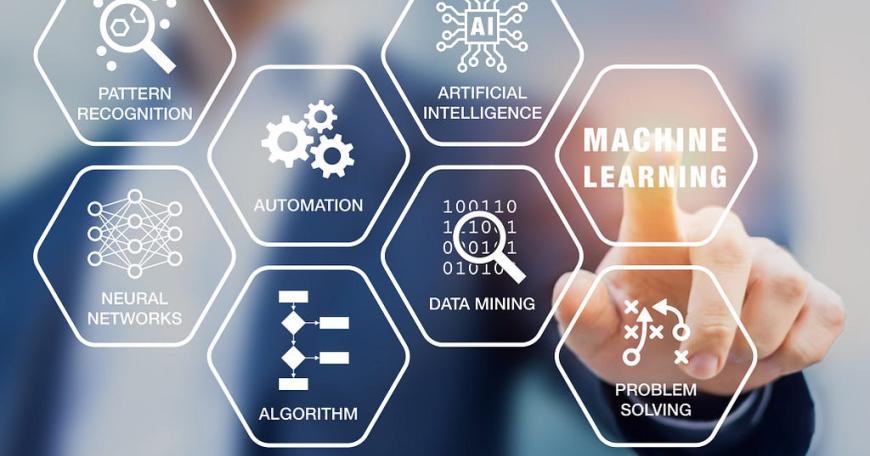
Evidence-Based Curriculum Design
OpenAI Academy's curriculum development reflects current expert consensus on effective AI education approaches. Leading researchers emphasize that successful implementation must avoid potential inversion effects, such as over-reliance leading to reduced cognitive engagement, requiring systematic and evidence-based approaches that balance practical application with theoretical understanding.
Course content undergoes continuous review and updating, incorporating the latest research findings, tool developments, and industry best practices. The curriculum design emphasizes transferable skills that adapt to technological change, teaching underlying principles and methodologies that remain valuable as the field evolves.
Expert-Led Instruction
The Academy's instructor network includes leading researchers, industry practitioners, and educational specialists who bring real-world expertise to the learning experience. These professionals maintain active involvement in AI research and development, ensuring their teaching reflects current industry practices and emerging trends while addressing the importance of enhancing AI literacy among students by improving their comprehension, awareness, skills, knowledge, and competencies.
Hands-On Project Development
Project-based learning represents a cornerstone of the Academy's educational philosophy, reflecting expert guidance that AI tools can provide customized learning paths, instant feedback, and career guidance when properly integrated into training programs. Students engage with realistic scenarios that mirror professional challenges, building competencies through direct application rather than theoretical study alone.
Projects span diverse industries and applications, from business analytics and content creation to scientific research and creative applications. Students build portfolios that demonstrate their capabilities to potential employers while developing problem-solving skills that transfer across different contexts and challenges.
Community and Networking Opportunities

Alumni Network
The OpenAI Academy alumni network creates lasting value that extends far beyond course completion. Professional networks have become essential for accessing opportunities in this rapidly evolving field, particularly as the industry experiences significant talent shortages in digital transformation initiatives.
Alumni connections improve visibility and referral opportunities for roles requiring AI expertise. The network facilitates mentorship relationships, collaborative projects, and knowledge sharing that support continuous professional development. Regular alumni events, both virtual and in-person, maintain community engagement while providing ongoing learning opportunities through industry updates and career development workshops.
Industry Partnerships
Strategic partnerships with leading technology companies, educational institutions, and research organizations expand the Academy's reach while enriching the learning experience. These collaborations ensure curriculum relevance, provide real-world project opportunities, and create direct pathways to employment and advancement.
Corporate partners often contribute guest lecturers, case studies, and internship opportunities that give students direct exposure to industry challenges and solutions. Research partnerships enable students to participate in cutting-edge AI development projects, contributing to advancing knowledge while building advanced competencies and professional relationships.
How to Get Started with The OpenAI Academy
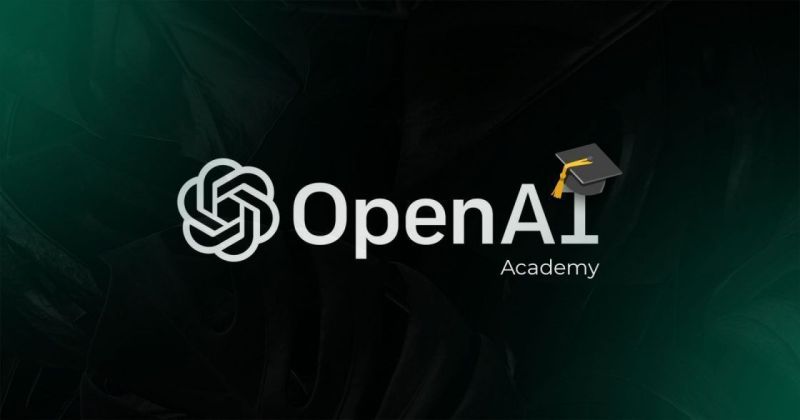
Enrollment Process
Getting started with The OpenAI Academy requires only basic internet access and genuine interest in AI learning. The streamlined registration process removes traditional barriers while providing immediate access to comprehensive learning resources and community features.
New students complete a brief orientation that introduces platform navigation, learning path options, and community guidelines. This onboarding process ensures successful engagement while respecting diverse technical backgrounds and learning preferences. The self-paced learning model allows students to begin immediately while accommodating various schedule constraints and learning speeds.
Financial Aid and Scholarships
OpenAI Academy's commitment to accessibility extends to removing all financial barriers to quality AI education. The completely free model ensures that economic circumstances never prevent motivated learners from accessing essential AI competencies and career advancement opportunities.
This approach reflects understanding that diverse participation in AI development benefits both individuals and society. Additional support resources, including hardware access programs and internet connectivity assistance, address broader accessibility challenges that might otherwise limit participation.
Frequently Asked Questions
Common questions about The OpenAI Academy reflect the diverse interests and backgrounds of prospective students. Technical prerequisites remain minimal, with most courses designed to accommodate learners regardless of their current programming or mathematical background. The platform provides foundational resources that bring all students to common starting points before advancing to specialized topics.
Certification approaches emphasize competency demonstration rather than traditional testing methods. Students build portfolios and complete projects that showcase their abilities to potential employers and collaborators, providing more meaningful credentialing than standardized assessment approaches.
Time commitment expectations vary based on individual goals and learning paths. Most students find that consistent, modest time investments yield significant progress, with flexibility to accelerate or extend learning timelines based on personal circumstances and professional requirements.
Future of AI Education with The OpenAI Academy
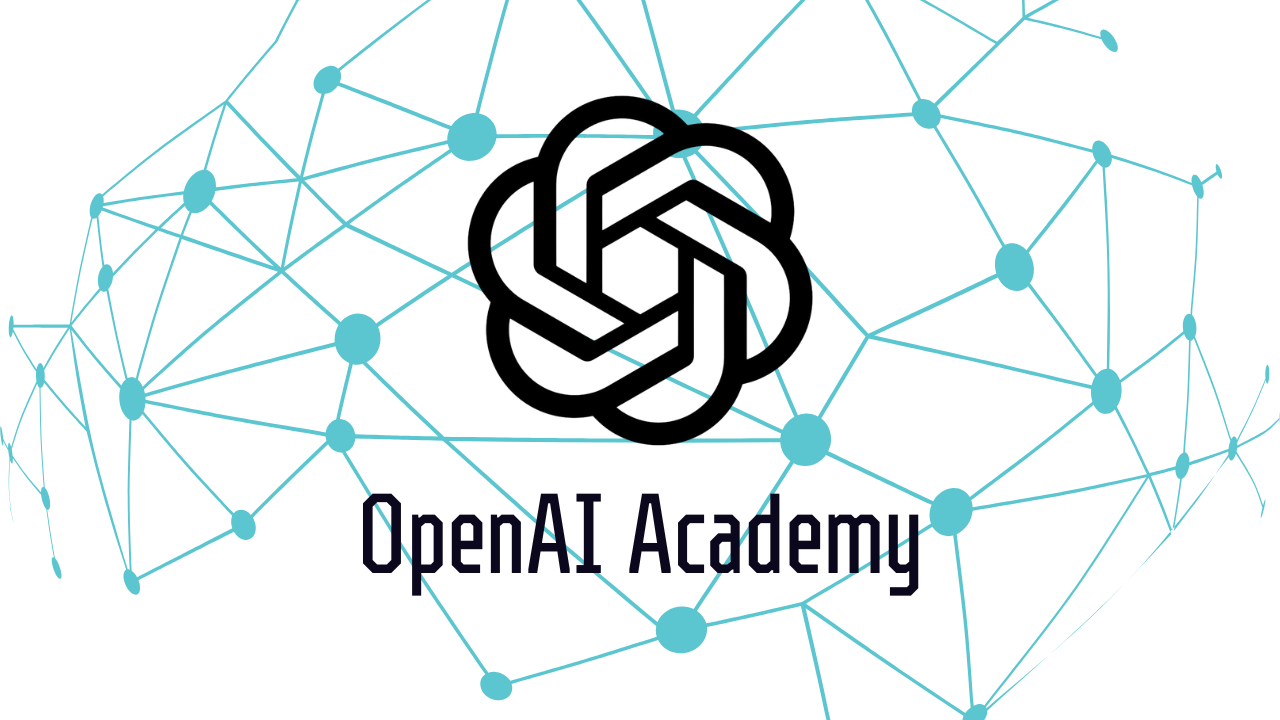
OpenAI Academy's future development plans reflect both technological advancement and evolving educational needs. The platform continues expanding course offerings, delivery methods, and community features to serve growing global demand for AI literacy and professional competencies.
Emerging technologies like virtual reality, augmented reality, and advanced simulation environments will enhance learning experiences while providing new opportunities for hands-on skill development. The Academy's global expansion strategy addresses the worldwide need for AI education while respecting cultural differences and local requirements, creating increasingly diverse learning communities that enrich the educational experience.
Partnership expansion will bring additional industry expertise, research opportunities, and career pathways that connect education directly to professional advancement. These relationships ensure that OpenAI Academy graduates remain at the forefront of AI innovation while contributing to responsible, inclusive technology development that benefits all of society.

